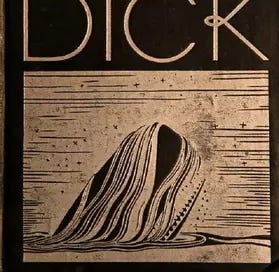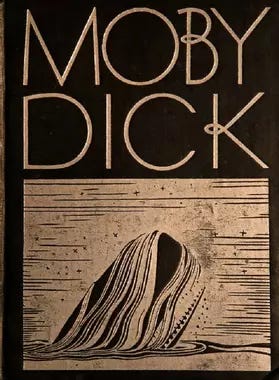There are some books where you just keep going and reading, never seeming to get to the end. Some are worth it in the end, and some aren’t.
I’m currently reading Bolano’s Savage Detectives and the rambling, disjointed middle section has slowed my progress to a crawl, despite how much I enjoyed the first part. It makes me wonder if it’s worth continuing with when it’s become something of a grind.
I’m not scared of skimming through sections, or abandoning a book completely if I’ve had enough. There are more than enough books on my shelves to not worry about weeding out things I just haven’t gotten on well with. Some I’ll come back to, most I won’t.
The worst offender is Moby Dick, a thousand pages of nineteenth century whaling trivia with occasional digressions into a story. Having heard so much about it from so many people whose views I respect I had high expectations - not least of Ahab. Instead I found him dull, peripheral and swamped by the mountains of boredom you had to get through to find where the thread of the story had gone. A far cry from the primal and magnetic force he’d been described to me as. Moby Dick’s without doubt the worst book I’ve read in years.
The common threads in books I abandon are easy to pick up. Unsympathetic characters is often a deal breaker for me. I found the Game of Thrones books uninteresting as a result of this - I simply didn’t care what happened to a single character as they pretty much all deserved whatever fate they got. Mid-way through the second book I came to the conclusion that the entire cast spontaneously combusting would be an improvement and closed the book.
Another issue which drives me away from books is the “cast of thousands” phenomenon, especially when it’s necessary to keep track of who’s who and where they fit. A central cast, with peripheral characters, is fine but I don’t want to take notes of everyone’s names and relationships to read a book. This is exacerbated if it’s a non-chronological novel and you need to check person, relationships, time and place.
Some writers become victims of their own success, with each following novel being worse than the one before. This is particularly the case where it feels that the editor has been frightened off and a rather rambling and messy manuscript has ended up in print rather than take the risk of offending the writer. Jean Auel’s last instalments in her Earth’s Children series definitely fall under this problem, and rely solely on the affection built up in the first half of the series to get people through to the end. I’ve found some of the Monster Hunters series by John Scalzi having a similar issue - under-edited and as a result deeply lacking in a central plot to drive things onwards.
On the other hand, there are no doubt books which start slow and reward the grind through. Tolkien is something of a standard bearer for this. It’s hard for me to think of a great many books which come back to the reader, where the slog is rewarding rather than the end simply being a relief.




Hi Samuel, great post. I struggle with the same question, although for me it's more about non-fiction than fiction. Some books are a joy to read, while others are a painful slog where I have to put it down for a break every couple pages. Ultimately it's a value judgment, but I will push through the slog if I feel like the value I am deriving from reading it outweighs the pain experienced by having to force myself to read it. The three volume Gulag Archipelago by Solzhenitsyn is one example of this. Also, as I have dozens of books waiting to be read, I try to vary what I read by going heavy book/light book (in terms of content) and switching up categories...I've thrown some fiction in recently including Goethe's Faust (part 2 was very painful to read).
The same thing applies to other media, of course. I havn't read Game of Thrones but I watched the first two episodes and stopped because there was no one worth rooting for, it was too nihilistic. Succession is another such example. There needs to be someone worth rooting for...and I very much hate the cast of thousands phenomenon!
This is why I'm not a big reader of novels, even if they are classic works. It can amount to filling the brain with a lot of waffle, indulgence and lard. What's the pay off ? It better be something really great. Never mind modern stuff which I interpret as people as with some addiction to a particular genre. I'm much more interested in the format of plays as a way of transmitting something than giant books.